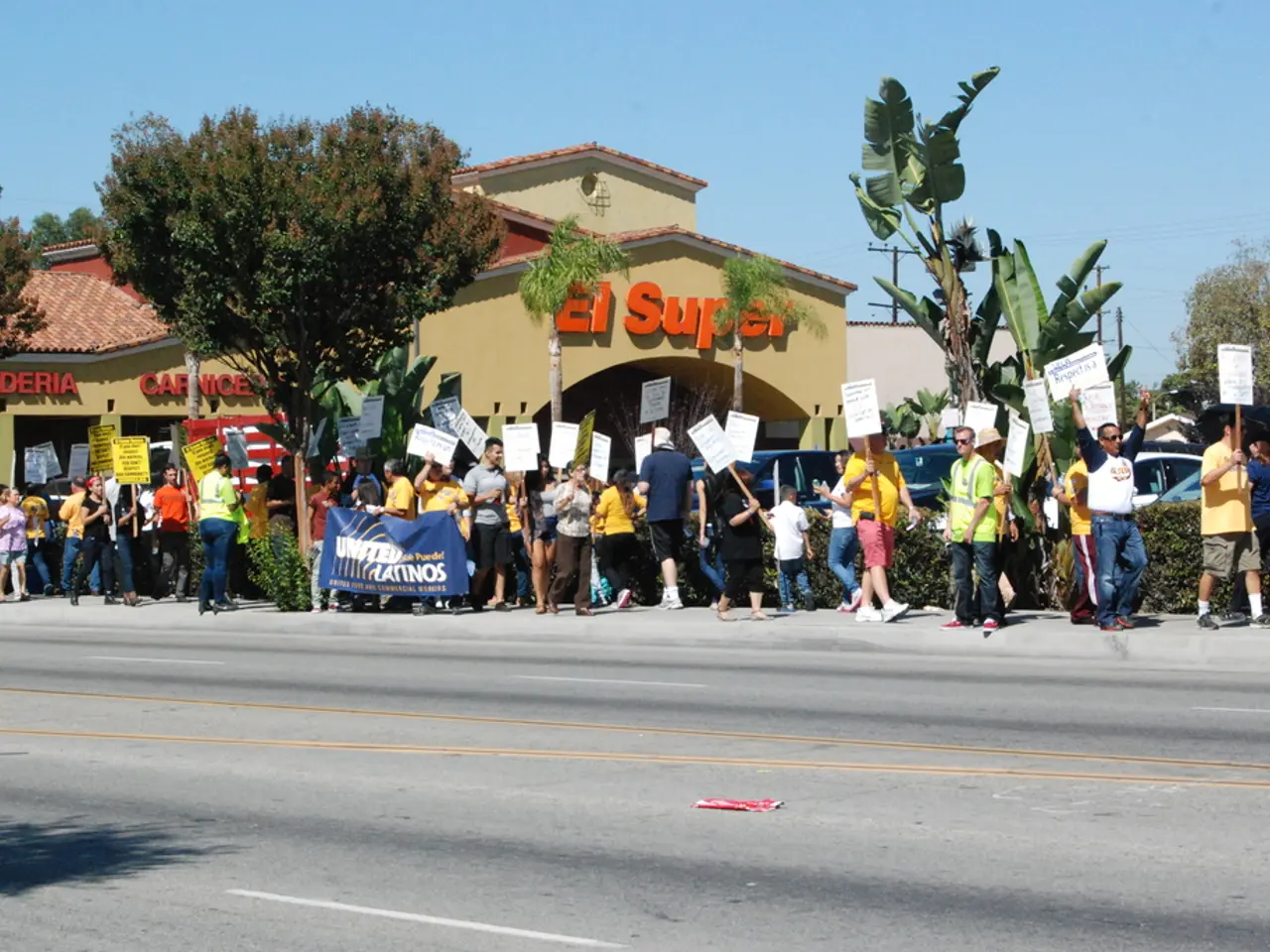Misrepresented crime stats mislead British citizens about crime prevalence
The UK is currently grappling with a crisis in the accuracy and reliability of its government statistics, particularly in areas such as crime rates and employment. This issue, which has been described as a scandal, is causing concern for potential investors and impacting governance and policy-making.
At the heart of the problem is the lack of complete and audited data, especially at the local authority level. According to reports, only around 4-10% of English councils submit reliable audited data for national accounts, with many submissions unaudited or missing entirely. This systemic failure impedes a firm assessment of the public sector's financial status.
Employment and family-related statistics, largely based on sample surveys like the Labour Force Survey (LFS), are also subject to sampling variability and non-sampling errors. The COVID-19 pandemic has further complicated data collection methods, potentially impacting the reliability of these statistics.
In the realm of crime statistics, while no direct source here evaluates crime data accuracy explicitly, there has been a measurable increase in certain crimes like murder and robbery. There is ongoing debate about the causes of these trends and how they might be influenced by factors such as austerity or other policies.
The consequences of inaccurate or incomplete data are far-reaching. They include diminished trust and an inability to certify government accounts, poorly informed policy and spending decisions, deterrence of investment, and a hindrance of efforts to understand and address structural social problems.
For instance, the National Audit Office has refused to sign off on government accounts due to pervasive data unreliability from local authorities. Without accurate data, resource allocation decisions may be misguided, potentially exacerbating issues like public expenditure mismanagement or ineffective crime prevention strategies.
Business and investors rely on sound statistics to assess economic conditions. Inaccurate data can undermine confidence and lead to suboptimal investment decisions. Moreover, incomplete or unreliable data hamper efforts to understand and address structural social problems such as unemployment, poverty, or crime, possibly perpetuating inequities.
Activists, politicians, and even those within the civil service have admitted to a lack of knowledge about the country they govern and its people. The lack of accurate official statistics makes it difficult for anyone to invest in Britain. Less than one percent of many crimes result in a charge, let alone a conviction, further complicating the picture.
The Labour Force Survey conducted by the Office for National Statistics has been considered unreliable since late 2024, while the official crime rate surveys are now beginning to show an increase in less violent crimes that were previously unrecorded.
The Office of Budget Responsibility (OBR), which has become increasingly important, supervising all fiscal policy despite its inaccurate forecasts and projections, adds to the concerns. The official numbers about the labor market are known to be incorrect and unreliable for at least two more years.
In summary, while UK government statistics are produced with methodological rigor, they face key challenges in completeness and auditing, particularly at local levels and during disruptions like the pandemic. These issues impact the quality of the statistics on crime rates, employment, and financial accounts, with significant consequences for governance, policy-making, and economic confidence. Continued efforts to strengthen data collection, auditing, and transparency remain critical.
[1] Source: House of Commons Library Briefing Paper, Number 7708, 2020 [2] Source: Institute for Fiscal Studies, 2021 [3] Source: Office for National Statistics, 2020 [4] Source: National Audit Office, 2020 [5] Source: Insolvency Service, 2020
- The crisis in the UK's government statistics, particularly in areas like crime rates and employment, is raising concerns not only in the realm of politics and governance but also in economic news, as businesses and investors rely on these statistics to assess the country's economic conditions.
- The ongoing debate about the accuracy of crime data, such as the measurable increase in certain crimes like murder and robbery, intertwines with the general-news landscape, as it could be influenced by various factors like austerity or other policies, while the lack of complete and audited data at local authority levels further complicates this matter.








